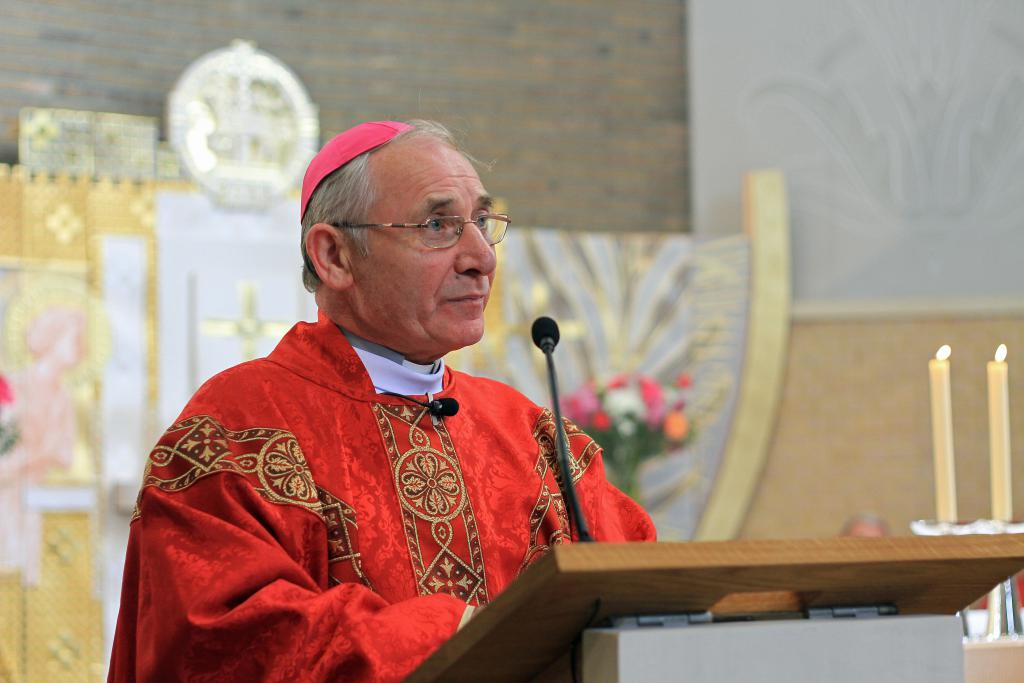As Brexit talks continue, the government announced on 21st January that the fee of £65 which millions of EU citizens were expected to pay as part of their application for settled status would be scrapped.
Bishop Paul McAleenan welcomed Prime Minister Theresa May's announcement that EU citizens applying for 'settled status' to remain in the UK after Brexit will no longer be expected to pay an application fee of £65 each.
Applicants must have lived in the UK for five years to be eligible for 'Settled Status'.
Lead bishop for migration and asylum for the Catholic Bishops' Conference of England and Wales, Bishop Paul said:
‘I am pleased that the government has abandoned plans to charge EU citizens for securing their existing rights.
‘As I conveyed to the immigration minister earlier this year, such charges would not only be unjust, but would also create an unnecessary barrier for many people accessing the settlement scheme.
‘The Church stands in solidarity with all EU citizens who have made their home here and we will continue to engage with the government as the scheme is implemented.’
In 2018, the government announced its plans for the settlement scheme, requiring any EU citizen who wants to remain in the UK after Brexit (with the exception of Irish citizens) to apply through the scheme, which is expected to launch in March 2019. ‘Settled status’ gives EU citizens access to education and healthcare after Britain leaves the EU.
In December, Bishop Paul had expressed concerns about the rollout of the scheme and the effect it would have on those who are vulnerable:
‘While this is an important step we understand that, especially for people who have contributed to our society over many years, it may feel unjust and divisive that they are now required to apply for permission to stay.
‘We also expect that some people, particularly those who are already vulnerable, may face difficulties in practically accessing the scheme, leaving their immigration status at risk.
‘Notwithstanding our concerns about these principles and practicalities, it remains a fact that EU citizens must apply if they are to protect their existing rights and their place in our society.
‘We therefore ask Catholic parishes, schools and organisations to bring the Settlement Scheme to the attention of all who need to avail of it and to be aware of vulnerable people who may face barriers to applying or not realise that they need to apply.
‘In particular, we encourage you to signpost people towards the official information on the Settlement Scheme: gov.uk/settled-status-eu-citizens-families and to make use of the various information resources available: gov.uk/government/publications/eu-settlement-scheme-community-leaders-toolkit’
Acknowledging the role of EU citizens in the UK, he added:
‘The Church has experienced first-hand the extensive contribution that people from across Europe have made to our society. They are an integral and valued part of our parishes, schools and communities.
‘We also recognise the evidence that immigration from Europe has not undermined opportunities for UK citizens, but rather brought considerable economic and social benefits.
‘It is clear that since the 2016 referendum many people living here have faced profound uncertainty and insecurity about their future.
‘Although the reassurances offered by senior politicians are important, people have been given far too little information or binding commitments about their right to stay.
‘For some this has been worsened by the appalling rise in hate crime, which has left them feeling unwelcome or even threatened in the country that has become their home. ‘
He urged the whole Catholic community ‘to take up Pope Francis’ call to welcome, protect, promote and help to integrate everyone who has made their home here, with particular concern at present for our European brothers and sisters.’




